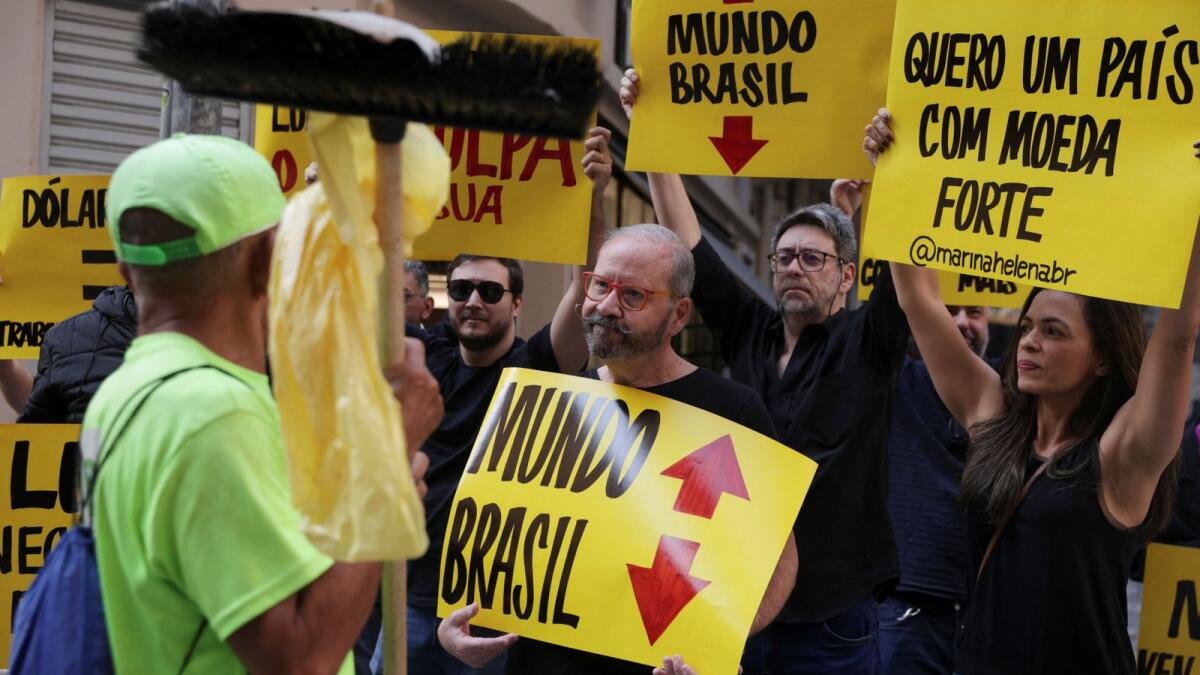The real currency of Brazil has experienced significant depreciation recently, prompting the country’s central bank to intervene through swap auctions. The central bank announced that it would hold an additional swap auction on Monday morning after two interventions on Friday failed to stabilize the currency. This marks the second time interventions have been made since President Luiz Inacio Lula da Silva took office in January 2023. The aim is to offer as much as 14,700 additional swap contracts to address the currency’s depreciation.
Earlier on Friday, the central bank sold 15,300 swap contracts valued at $765 million out of the 30,000 offered in a surprise auction. This move followed the sale of the entire $1.5 billion offered in a spot auction the night before. Despite initially opening strong against the U.S. dollar, the real reversed course and weakened, hitting a session low of 5.69 per greenback. The currency later recovered slightly but still ended the session down around 0.2%, contributing to a year-to-date depreciation of around 14%.
Central bank chief Roberto Campos Neto emphasized that interventions are made based on assessing economic indicators and not short-term fluctuations. He indicated that the decision was made in response to “atypical flow due to the rebalance of an index.” Both Campos Neto and monetary policy director Gabriel Galipolo stressed that interventions would only occur in cases of market dysfunction and after careful discussion. Galipolo was recently nominated by President Lula to head the central bank from next year.
Market sources suggest that the recent performance of the real has prompted policymakers to take action, especially with the end-of-month Ptax rate providing an opportunity for intervention. The Ptax rate, calculated by the central bank based on spot market quotations, serves as a reference for settling futures contracts. With the central bank’s decision to keep the benchmark interest rate unchanged at 10.50% in July, but to be willing to raise rates if necessary, there is a focus on stabilizing the currency.
President Lula expressed his willingness to heed the advice of experts, including Galipolo, regarding interest rate adjustments. This aligns with the central bank’s approach of assessing the economic situation to make informed policy decisions. The overall goal is to address the challenges posed by the real’s depreciation, which impacts consumer prices and the fight against inflation. As the central bank continues to monitor the situation, further interventions may be implemented to maintain stability and support the Brazilian economy.










